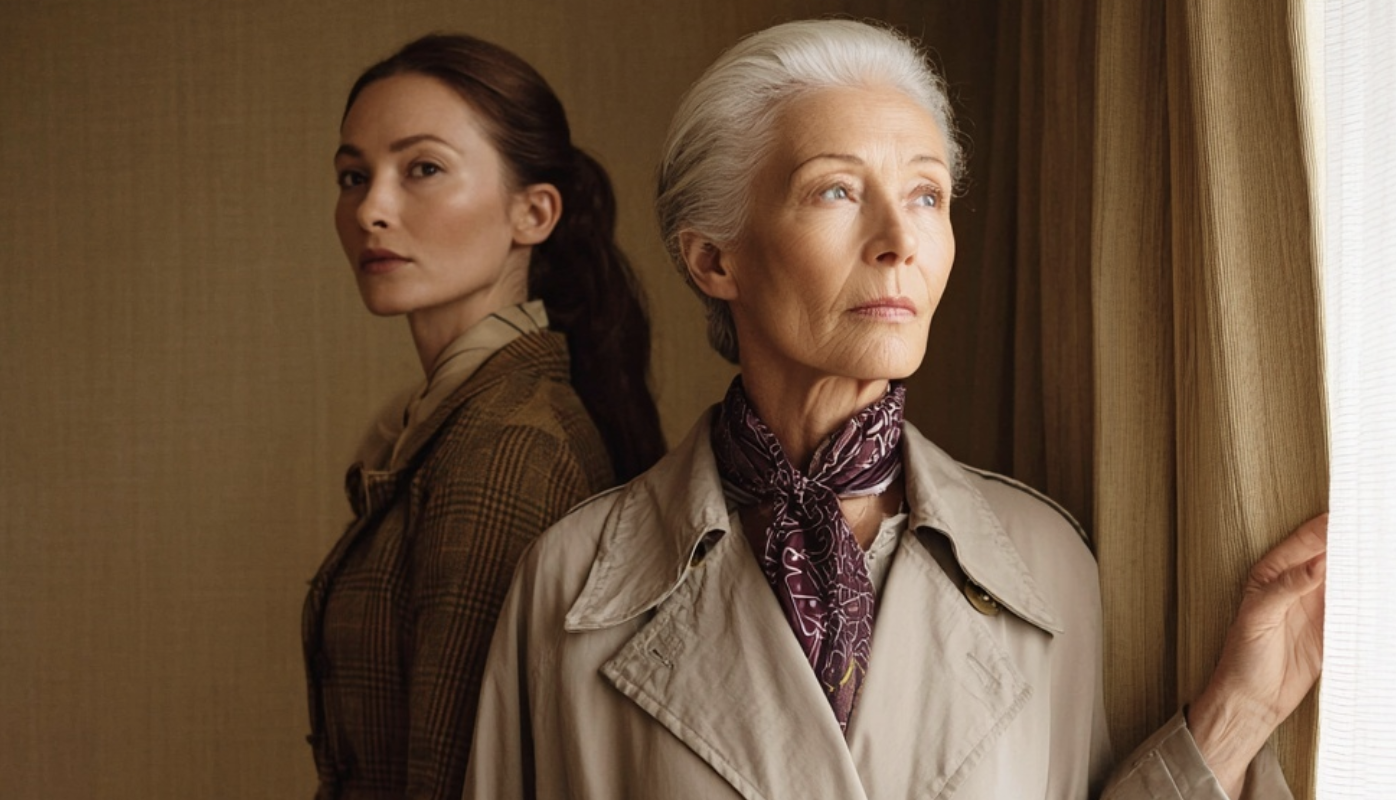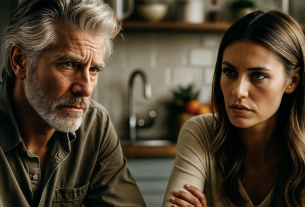That day, Antonina Petrovna arrived without warning.
“Hello,” came the mother-in-law’s cold tone from the hallway.
Luda automatically wiped her hands on her apron.
“Hello, Antonina Petrovna.”
“Potatoes again?” The mother-in-law looked over the plates on the table and wrinkled her nose. “I told you, children shouldn’t have so much starch.”
Relations with Antonina Petrovna had always been tense. Luda married Misha knowing his mother was a strict woman. But after the wedding it only got worse. She meddled in everything: how to iron Misha’s shirts, how to raise the children. Misha always asked her to be patient.
“That’s how she is,” he would say. “Mom likes to control everything. But she means well.”
The terrible news came suddenly.
“I’ve been given a diagnosis,” the mother-in-law announced over the phone. “I need to go into the clinic. And afterward I’ll need rehabilitation. A couple of months. Lyudochka, I was thinking… You won’t abandon me, will you?”
“Yeah, right,” Luda wanted to say, but she quietly replied,
“Of course, we’ll find somewhere to put you.”
When Misha came home that evening, Luda tried to explain why it was a bad idea.
“Misha, she won’t let me live in peace.”
“Lyudochka, come on—it’s my mom. She can’t manage on her own.”
Antonina Petrovna moved in right after she was discharged.
“Lyudochka, move the armchair—this spot is more comfortable for me,” she ordered as she walked into the living room.
And so it began. A sheet of paper with a schedule appeared in the house: wake-up at seven, a menu for each day.
“I’ve drawn up a diet,” the mother-in-law announced. “No fried food, more soups.”
Life turned into one continuous series of “by the rules.” Luda couldn’t even set a cup on the table without a remark.
“Misha, I can’t take this anymore,” she said one evening.
“Bear with it,” he waved her off. “It won’t be for long.”
The turning point came one morning when, at five a.m., Antonina Petrovna started loudly moving furniture.
“What’s going on?” Luda asked.
“I decided the bed will be better like this.”
“You’re not allowed to lift heavy things!”
“It’s fine; you won’t do it the way I need anyway.”
The children woke up from the banging.
“Let’s go see the surgeon,” Luda suddenly said firmly. “To assess how your recovery is going.”
“No need. I know perfectly well how I feel.”
“I insist.”
The surgeon turned out to be an old acquaintance of Luda’s—Andrey, her classmate.
“Andrey, I need an honest assessment,” she said quickly in the corridor.
After a few minutes of examination he delivered his verdict:
“You know, recovery after such procedures usually goes quickly. You’ve been able to lead a normal life for quite some time. You’re perfectly capable of walking, cooking, and handling household tasks.”
Antonina Petrovna turned pale.
At home, when Misha returned, Luda said decisively,
“We went to the surgeon. The doctor said your mother has long been able to live independently.”
Antonina Petrovna threw up her hands.
“What are you saying?! Your doctor doesn’t know anything!”
Misha tried to cut in:
“Hold on, Luda. Maybe the doctor is mistaken?”
“Misha, there’s nothing complicated here. This whole time your mother could easily have lived on her own.”
“You hear that? She wants to throw me out!”
“I’m sorry, but your mother will not be living with us,” Luda stated firmly.
“Are you serious?” Misha finally asked.
“Yes.”
Antonina Petrovna cried out:
“Oh, so that’s how it is! You’re throwing a helpless woman out into the street?!”
“I’m not throwing you out. You have your own apartment.”
“I’ll go! Of course I’ll go! But you’ll regret it, Misha, for letting your wife treat me like this!”
She headed to her room, slamming the door.
“Luda, are you sure this is right?” Misha looked at his wife wearily.
“Yes. We need to take our home back. For us. For our children.”
Antonina Petrovna’s departure was loud and theatrical.
“I hope you understand that because of her you’re losing me,” she said to her son in farewell.
When she left, Luda felt the invisible tension fade from the house. Misha came up, put his arm around her shoulders, and said quietly,
“You were right. It’s calmer now.”



